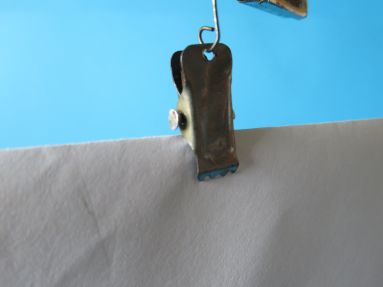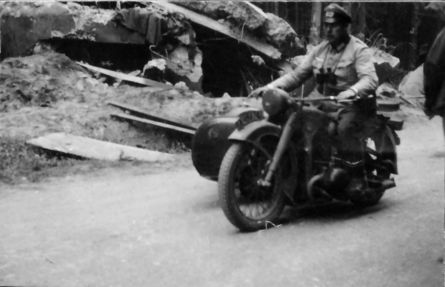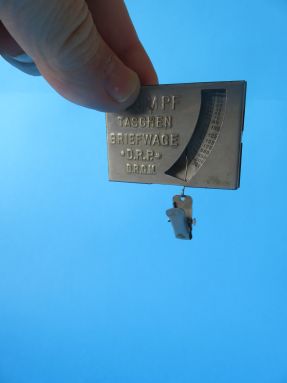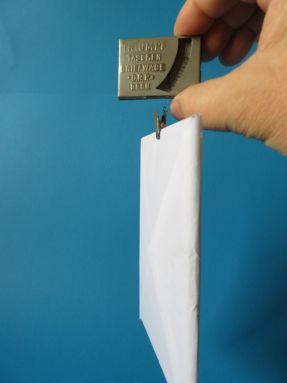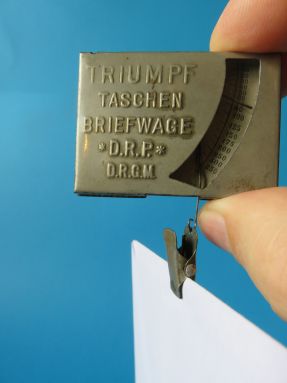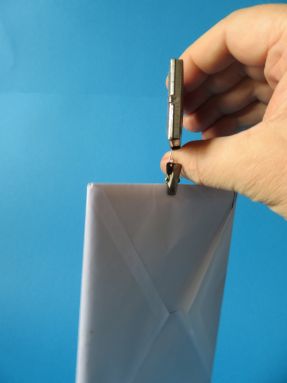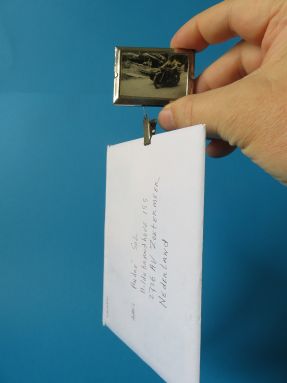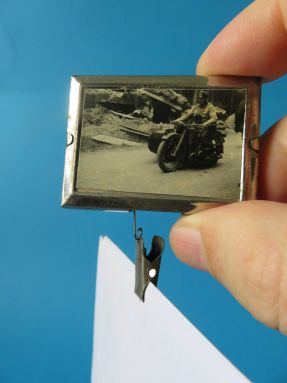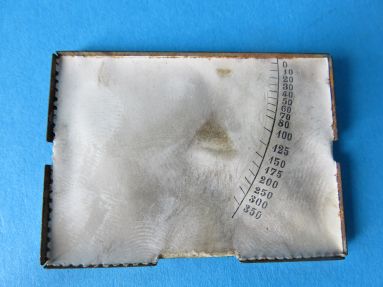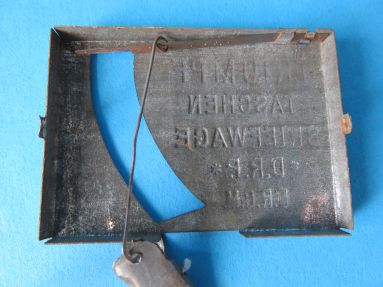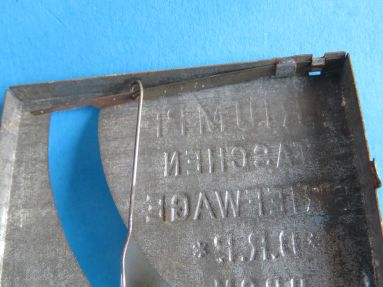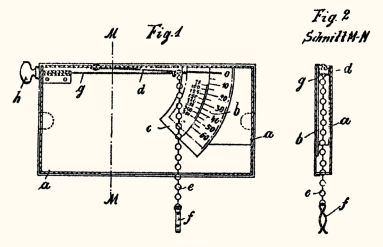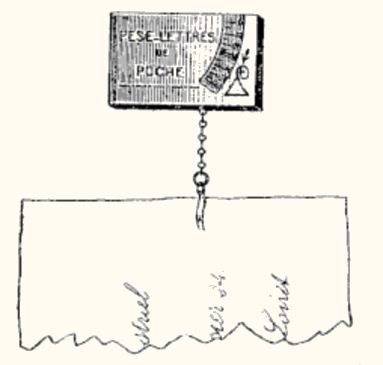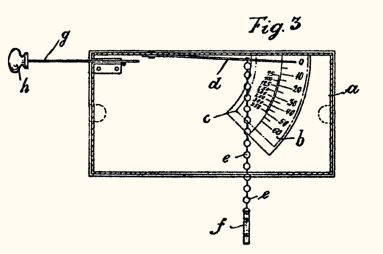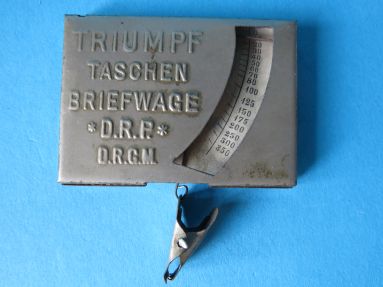
Triumpf pocket letter scale [Taschenbriefwage]
This pocket letter scale, or in German: Taschenbriefwage, weighs up to 350 grams. This was the maximum weighing range allowed in France, At a higher range a calibration was required. This Triumpf most probably comes from Germany, given the text on the letter scale TASCHEN BRIEFWAGE and the indications D.R.P. and D.R.G.M.. I have not found the relevant patent. However, I found the German patent DE227451 from 1910 with a comparable pocket letter scale with a double scale of measurements. Optionally, depending on the position of a leaf spring slide, it weighs from 0 to 60 grams, or from 75 to 350 grams.
The simplest version, without the leaf spring slide and with just one leaf spring is depicted in the 1909 catalog of Ph.J. Maul as Westentaschen-Briefwaage. The D.R.G.M. patent number DE318707 on the catalog picture is incorrect and does not belong to this scale design. The catalog emphasizes the possibility of providing the back of this vest pocket scale
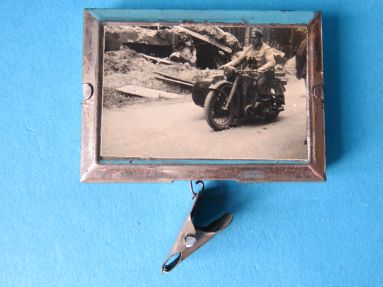
back of the Triumpf pocket letter scale
